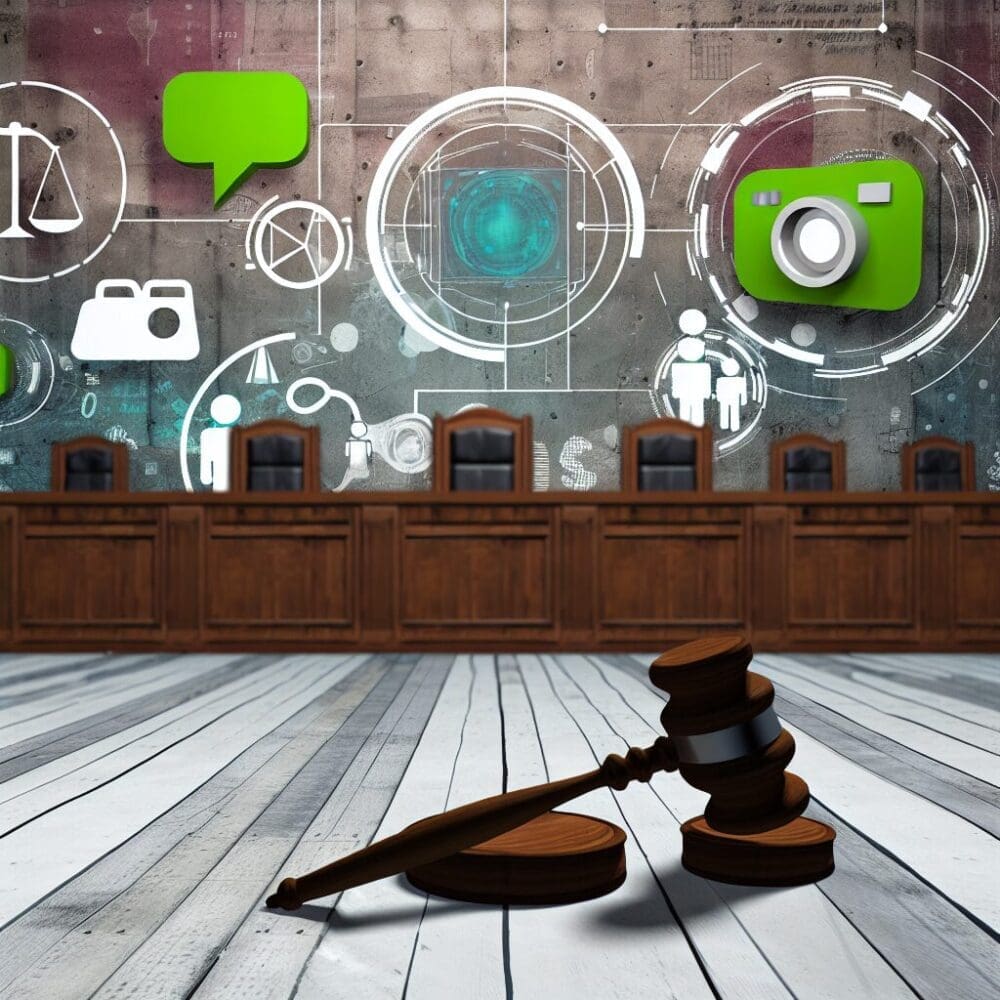“`html
Meta Faces Trial Over WhatsApp, Instagram Acquisitions Dispute
In a groundbreaking development that could significantly reshape the tech industry, Meta Platforms Inc., formerly known as Facebook, is braced for a legal showdown. This comes as antitrust regulators are challenging its acquisitions of WhatsApp and Instagram, landmark transactions that played pivotal roles in Meta’s expansion strategy. As the court case unfolds, it promises to be a critical moment in the ongoing debate about tech giants and their market dominance.
The Genesis of the Legal Battle
Meta’s acquisitions of WhatsApp in 2014 and Instagram in 2012 were initially celebrated as masterstrokes in corporate strategy. However, over time, these deals have come under scrutiny. Concerns have been raised about their potential to stifle competition, monopolize user data, and integrate platforms into a synoptic social media network that suppresses other emerging players.
What Are Antitrust Laws?
Antitrust laws are statutes developed to protect consumers from predatory business practices and to ensure fair competition. They prevent illegal mergers and prohibit monopolistic practices. In Meta’s case, antitrust regulators argue that the acquisition of WhatsApp and Instagram could potentially diminish competition.
The Power Dynamics at Play
Meta’s influence in the technology sector is immense and far-reaching. As Facebook, the company made strategic purchases of Instagram at $1 billion and WhatsApp for a staggering $19 billion. These acquisitions have since helped Meta maintain a leading position among social media platforms worldwide.
The Implications of Acquisitions
- Market Control: By owning Instagram, WhatsApp, and the Facebook platform, Meta holds the reins to the three most widely used social networking platforms, posing a challenge to the diversity of social media.
- User Data: These acquisitions enable Meta to aggregate an unmatched amount of user data, which raises privacy and ethical concerns.
- Competition Elimination: Critics argue that acquiring popular applications eliminates competition, stifling innovation and limiting user choice.
How This Legal Battle Differs
Unlike previous antitrust cases against Meta, notably revolving around privacy breaches and election interference allegations, this case seeks to fundamentally question and possibly reverse strategic acquisitions. The outcome could redefine the legal frameworks surrounding technological acquisitions and set precedents impacting future tech mergers.
Potential Outcomes
- Forced Divestiture: If ruled against, Meta could be compelled to divest its acquisitions, effectively dismantling the umbrella conglomerate it has built over the years.
- Monetary Penalties: Fines and other financial stipulations could be imposed, although these may not address the core issues of competition and consumer choice.
- Regulatory Reforms: A ruling against Meta might result in stricter regulatory measures, refining how future acquisitions are evaluated.
The Stakes for Meta
For Meta, the stakes are staggeringly high. The separation of its services could lead to a loss of operational synergy and significantly impact its advertising power, which relies heavily on data from all its platforms.
Global Repercussions
This trial not only affects American tech regulation but also has implications for global tech policy, as countries worldwide closely watch how powerful tech entities are regulated in the U.S.
The Bigger Picture: Data Privacy and User Impact
The trillion-dollar question remains: how these acquisitions affect the day-to-day user? Privacy advocates argue that consolidating various data streams under one entity raises significant privacy risks. Centralized data enhances advertising precision, but at what cost to personal privacy and autonomy?
User Concerns
- Individual Privacy: Users might find a more personalized but invasive advertising model due to Meta’s data aggregation capabilities.
- Market Choices: Consumers may experience fewer alternatives in the social networking space, impacting their engagement and representation in digital mediums.
- Future Innovations: Smaller start-ups might struggle to gain a competitive edge, limiting innovation and product diversity in the tech landscape.
Looking Ahead: The Courtroom and Beyond
The courtroom drama surrounding Meta’s acquisitions speaks to larger societal concerns about the ethical dimensions of tech monopolies. As stakeholders from consumers to policymakers weigh in, the trial could set a crucial precedent that resonates across industries.
Key Dates and Expectations
- The trial date is set, although proceedings can span months if not years, given the complexity and high stakes involved.
- Both sides are expected to present exhaustive data and expert testimonies, proposing formidable arguments for and against the dissolution of Meta’s acquisitions.
- The tech world keenly anticipates the trial’s outcome, with possible ripple effects across regulatory practices globally.
Conclusion: A Turning Point for Tech Regulation?
This trial could not only redefine Meta’s future but also bring about significant shifts in antitrust regulations for technology entities worldwide. As Meta contends with these pivotal legal challenges, the world watches closely, ready to witness an episode that may very well shape the new era of digital governance.
“`



